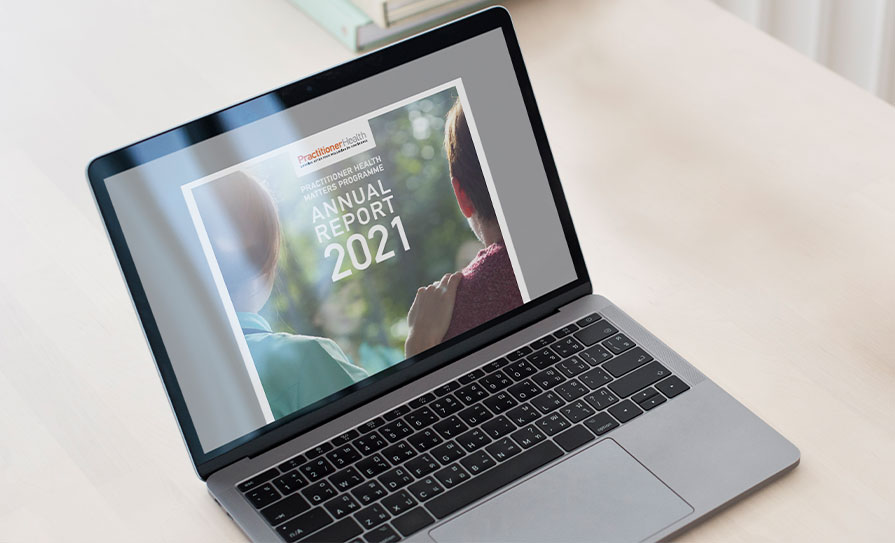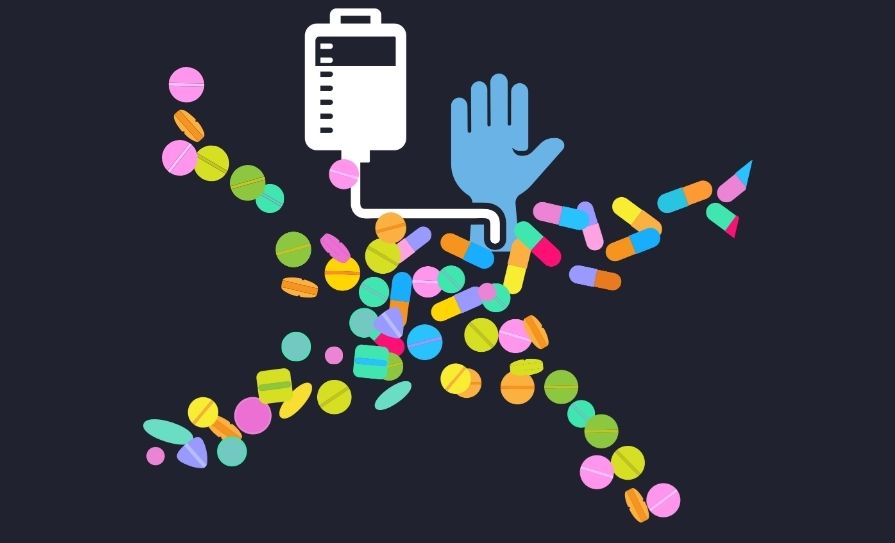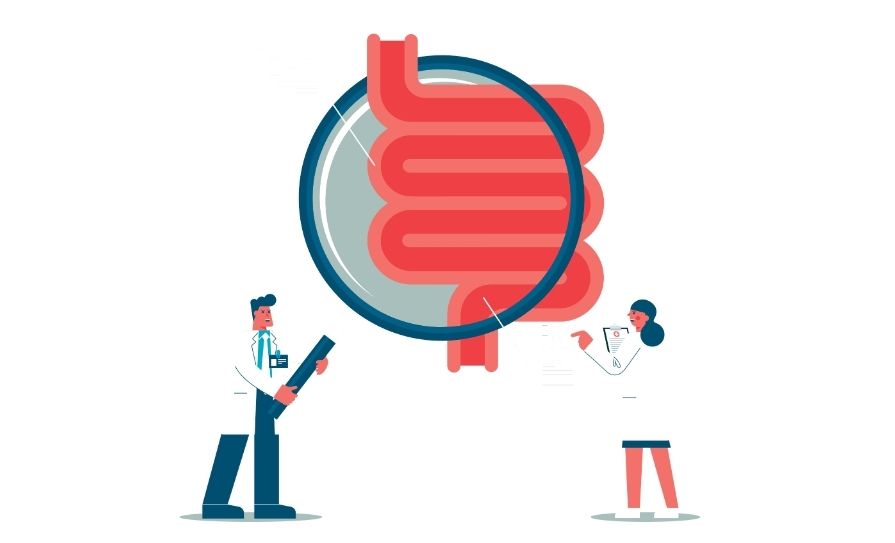The head of the Practitioner Health Matters Programme speaks with IP about the trends in its latest annual report.
The number of healthcare professionals presenting with stress, anxiety, and burnout has increased by more than one-third, according to the Practitioner Health Matters Programme (PHMP) Annual Report 2021.
The data shows a 36 per cent year-on-year increase in new presentations and a more than doubling of presentations since 2015. Some of the top-line findings include:
- 106 new presentations to PHMP in 2021 – increased from 78 in 2020.
- Issues relating to anxiety, depression, substance use, and burnout feature predominantly in those presenting.
- 83 per cent of those presenting are doctors, followed by pharmacists (10 per cent), dentists (4 per cent) and students (3 per cent).
Since the PHMP service began in 2015, the programme has supported 454 patients with circa 2,000 consultations.
Dr Íde Delargy, Medical Director, PHMP, spoke with Irish Pharmacist (IP) about the particular challenges being faced by the pharmacy profession. In particular, she was asked about the stress placed on pharmacists during Covid-19, as pharmacies were required to stay open even from the outset of the pandemic, when there was great uncertainty as to the true nature of the virus and its threat to human life.
“Pharmacists really were right at the front line during the whole of Covid, not just in the early stages, but they were vital in the vaccination stage as well,” she said. “They really played a stellar role in combating Covid but of course that takes its toll on individuals, people who may have felt personally anxious about their own health, as well as trying to contribute to the national effort. This is combined with trying to keep their pharmacy open, trying to keep their staff safe — all of those demands were enormous for pharmacists; they were particularly badly affected by all of this.”
However, Dr Delargy also commented on the overall rates of emotional and psychological issues within the profession. “Despite all this, the overall numbers for pharmacists [presenting to PHMP] is still relatively low,” she told IP. “We recognise the challenges that pharmacists have been under, but we also recognise that there are no doubt many people out there who could have difficulties, and of course we are happy to see them and help them to get through their difficulties.
“So we are trying to get that message out — we know there are others out there who for the moment haven’t come forward to get some support, help and advice, and we would really encourage those people to come forward.”
SELF-DIAGNOSIS
Dr Delargy has noted in the past that there is a tendency for healthcare professionals to self-diagnose and self-prescribe, and she has previously emphasised the importance of doctors having their own GP, for example. This advice is transferrable to pharmacists, she pointed out. “It’s almost a professional requirement really that you would have your own medical advisor and seek out that advice when you have difficulties, and that you don’t resort to the self-management and self-medication route, which can lead to a more serious scenario, particularly for some vulnerable individuals,” she commented.
“It’s important to recognise that as professionals, we are no different to anybody else — we are still human beings, we still face the same day-to-day challenges of any person, but married with that are huge responsibilities, because we are there to take care of other people.
“It’s not a source of shame or vulnerability to come forward to us and say, ‘I’m struggling and need a little help’. That can be through your GP, if you are comfortable enough to speak with them about these matters.”
However, she also acknowledged that there are often perceived barriers to healthcare professionals in asking for such help. “They often feel that they cannot speak to their local GP about such things,” Dr Delargy told IP. “There are lots of reasons for that and we need to combat that, and that’s where our confidential service comes in, that’s where we can deal with issues in a low-threshold but confidential way that can make it more acceptable for somebody with a problem to come forward.”
PHARMACIST ISSUES
Pharmacists have faced their own particular issues in recent years, such as fee cuts, increased bureaucratic and administrative workloads, issues around remuneration for services, and staffing and locum issues, and Dr Delargy was asked whether these issues were voiced in their presentations to the PHMP. “These issues are all contributors to a sense of being overwhelmed, of anxiety and stress,” she replied. “Financial pressure, work demands, increasing responsibility, and so on — they are all contributing factors, and I acknowledge that. But it’s never just one thing that people come forward with. They may come into the room and say it’s one particular thing, but usually when we go through the assessment and pare-back the layers, we find it’s usually a combination of things that have come together and broken the person and taken them to a place where they are at the limit of what they can cope with.
“They then need help to de-escalate the situation and reposition their way of thinking and their way of coping,” she continued. “We can help these pharmacists — it can take time, but that’s what we can do with the service we offer.”
The number of new presentations in a calendar year has now more than doubled in the five-year period from 2015 to 2021, according to the figures.
Of those presenting, the predominant issues include anxiety, depression, substance use issues and burnout, with others also citing stress, feelings of being overwhelmed, sleep problems and moral distress.
According to the PHMP, healthcare professionals rarely present with a single issue, but rather a wide range of conditions and concerns. Three out of four new presentations are aged between 26-to-49 years, with 57 per cent female.
The PHMP continues to support 79 practitioners while they continue to work, 19 practitioners who have returned to work after a period of time off, and eight practitioners who are no longer working but continue to attend.
ADDITIONAL SERVICES
In response to the growing demand for the programme, the PHMP has introduced two additional services in 2021, including psycho-education programmes for practitioners suffering from stress and anxiety, and group intervention programmes.
Since the PHMP began in 2015, it has supported 454 patients from the healthcare profession, with almost 2,000 consultations recorded over this period.
Writing in the Annual Report, Dr Delargy explained: “This year, we recorded the biggest increase in new presentations since the PHMP service began, which can be attributed in part to the continued impact of Covid-19 on our healthcare system.
“As a society, we stood behind our healthcare professionals, many of whom worked on the front-line for much of the pandemic. But… whether stress is caused by the uncertainty of the pandemic or the mental and physical strain of a relentless workload, the lasting legacy of Covid-19 will be felt by our doctors, dentists, and pharmacists for a considerable time to come.
“We are seeing more and more clinicians attending the PHMP service with symptoms associated with burnout, anxiety, and depression. Many of these symptoms are leading individuals to misuse substances, whether alcohol, drugs, or both. Others talk about having reached a breaking point where they can no longer see a future in their careers and have no other option but to leave the profession. In the most severe cases, some admitted to suicidal thoughts.
“Happily, however, with the right support and intervention, there can be positive outcomes. Of those we have treated, 92 per cent have continued working when sufficiently recovered having successfully accessed the necessary time, care and support needed to address what are often very complex needs.
“Most importantly, they do so in a strictly confidential manner with the full support of the relevant professional councils.
“A challenge for us today is ensuring that all doctors, dentists, and pharmacists are aware of our service and how to access the programme before they ever reach crisis point,” she concluded. “While, as practitioners ourselves, we understand the complexities of why a healthcare professional may be reluctant to admit they have a problem, the more public awareness we can create of the supports that are available, the more likely we are to be able to intervene before a problem becomes critical.”
‘DAMAGE’
Of those who have presented over this time, more than three-quarters are doctors (79 per cent) followed by pharmacists (10 per cent), dentists (9 per cent) and other (2 per cent).
The majority are aged between 26 and 49 years (74 per cent), and most are female (54 per cent). Of the 358 doctors who have presented, 45 per cent were NCHDs, 29 per cent were GPs and GP trainees, and 23 per cent were consultants.
Prof Frank Murray, Chairperson of PHMP, also commented: “We are only beginning to see the damage caused to the mental health and well-being of doctors, dentists, and pharmacists from Covid-related pressures on the healthcare system and those at its coalface.
“The confidential nature of the PHMP, as well as its independence, goes a long way to providing reassurances to healthcare professionals who need help but for whom normal healthcare pathways may be difficult to engage with.
“Enabling the majority of healthcare professionals who engage with PHMP to return to practice successfully is testament to the quality of care provided by this important service.”
The PHMP was launched in 2015 and provides a confidential service to doctors, dentists and pharmacists who may be experiencing stress, burnout, mental health, or substance use issues. This important service acknowledges that practitioners can often find it difficult to access appropriate and confidential medical help, particularly when it relates to their own health and wellbeing.
For more information, or to make contact with the service, see www.practitionerhealth.ie.







